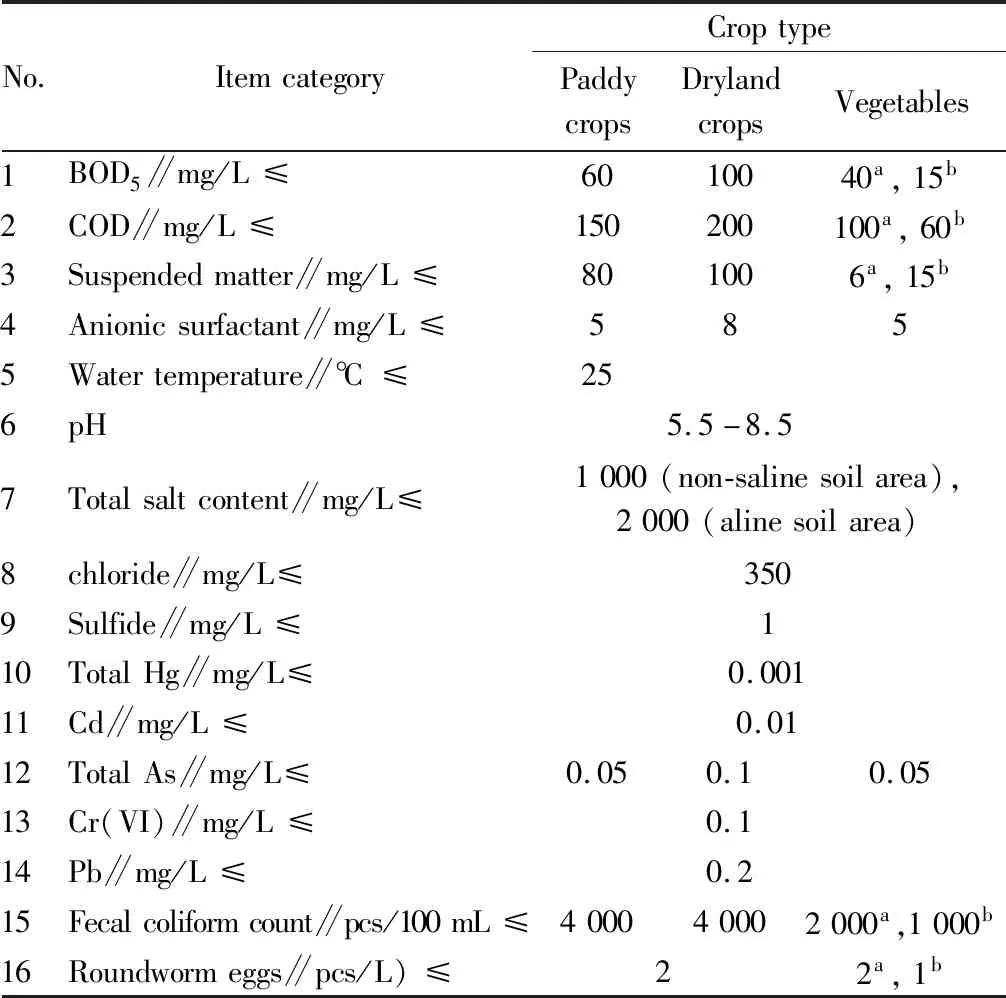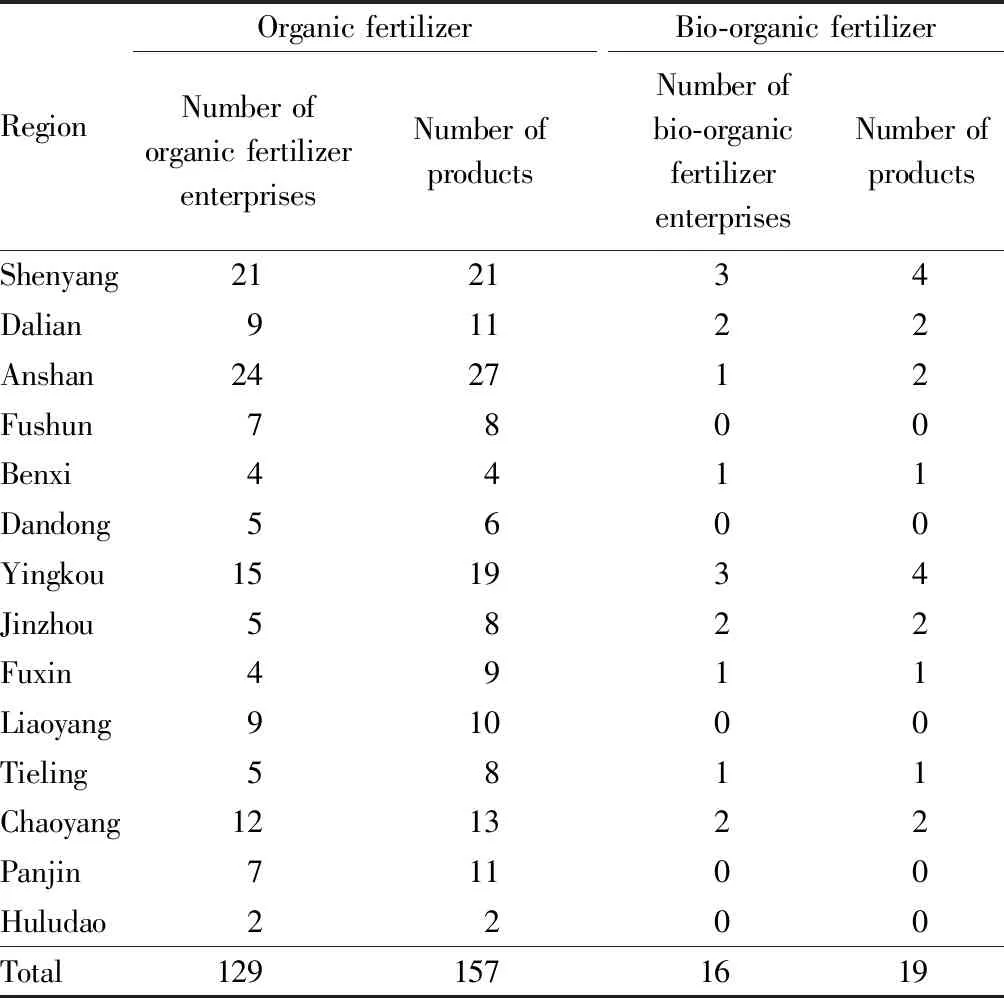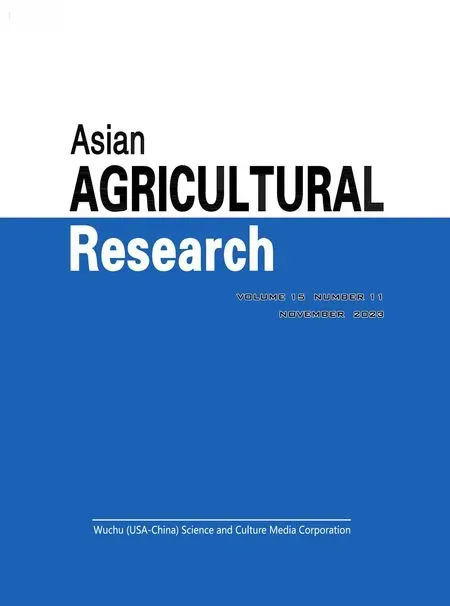Requirements and Safeguard Measures for Using Soil Fertilizer in Organic Agriculture: A Case Study of Fushun City in Liaoning Province
Dan SONG
Liaoning Agricultural Development Service Center, Shenyang 110034, China
Abstract This paper summarized the requirements of organic agriculture for soil environment, fertilizer application and irrigation water quality, put forward safeguard measures for organic agriculture in terms of soil, fertilizer and water, and finally came up with recommendations for strengthening the use of soil fertilizers in organic agriculture.
Key words Organic agriculture, Soil fertilizer, Soil environment, Fertilizer application, Safeguard measures
1 Introduction
As an agricultural production method that adopts ecology-friendly and environment-friendly technologies and maintains a sustainable and stable agricultural production system, organic agriculture has been increasingly advocated and regarded as a practical way to solve food safety and sustainable agricultural development. The use of chemical fertilizers is prohibited in organic agricultural production, so there are special requirements in terms of soil environment, soil and water conservation, fertilizer application,etc., and it is necessary to take special safeguard measures.
2 Requirements of organic agriculture for soil environment
The soil and environment for organic agricultural production must meet certain standards. The basic requirements are: the soil should have no history of heavy metal and pesticide pollution, and there should be no sources of polluted water, soil, and air hazards around the organic agricultural base, such as landfills, factories, and arterial roads. A buffer zone must be set up between the organic fields and the surrounding conventional agricultural production fields to prevent the organic fields from being polluted by the surrounding prohibited substances.
China requires that the environmental quality of organic production plots must comply with theEnvironmentalQualityStandardforSoils(GB 15618-1995), which has formulated relevant standards for pesticide residues and heavy metal content in soil (Table 1). According to the organic specification standard, the land for organic agricultural production should at least meet the grade II soil standard. It is stipulated that if the pesticide residues and heavy metal content of the testing plot exceed the corresponding national standards, the certification body will cancel the certification of the plot.
3 Requirements of organic agriculture for fertilizer application
In organic agricultural production, chemically synthesized fertilizers, plant growth regulators, and soil conditioners are not allowed to be used. It is necessary to ensure that a sufficient amount of organic fertilizer is applied to maintain or improve soil fertility. Fertilizers applied should be fertilizers that come primarily from organic farms. Non-synthetic mineral fertilizers and purchased organic matter fertilizers should be used as supplements to soil enrichment, not as a basis for nutrient cycling. In case of special circumstances (such as the adoption of intensive farming methods) or in the period of organic conversion or confirmed special nutrient requirements,etc., the amount of fertilizer input from outside the organic production system can be appropriately increased with the approval of the certification body. Mineral fertilizers used must be of natural composition and not chemically treated. The types and quantities of fertilizers used in organic agricultural production units should not have adverse effects and pollution on the environment. The fertilizers used for soil fertilization cannot bring about excess plant nutrients, biological pathogenicity, residues of heavy metals or prohibited substances, and cause pollution to crops, soil or water.
3.1RequirementsfortypesandsourcesoffertilizersChina’sSpecificationsforCertificationofOrganicProductProductionandProcessinglists in detail the allowed and restricted substances used in the process of soil fertilization.
3.1.1Organic substances. Organic substances allowed for direct use include organic matter produced in organic farming systems, such as farmyard manure, crop straw and green manure. In cases where the aforementioned substances are not available, the use of organic substances from outside organic farming systems may be conditionally restricted, but their use should be avoided as much as possible. In addition, their use must be approved by the monitoring agency, and the source, amount of use, and method of use need to be stated, and there is evidence that the substance is not polluted by prohibited substances. Restricted substances include: straw, compost, seaweed or seaweed products produced by physical methods, unchemically treated wood, bark, sawdust, wood shavings, wood ash, humic acid substances, fully decomposed farmyard manure, fully decomposed human waste, unadulterated meat, bone and skin products (excluding animal blood), food industry by-products without synthetic additives, peat without synthetic additives, cakes (not processed by chemical methods), fish meal,etc.

Table 1 Standard value of soil environmental quality mg/kg
3.1.2Mineral fertilizers. Mineral fertilizers that are allowed to be used directly include: potassium ore powder, magnesium ore powder, natural sulfur, limestone, gypsum and chalk, clay, calcium chloride, sodium chloride (well salt), kiln dust, phosphate rock powder (Cd content 90 mg/kg), epsom salts (hydrous sulfate rock), and boric acid rock. Mineral fertilizers that are restricted to use include alkaline slag, calcium and magnesium modifiers, and trace elements. The above-mentioned mineral fertilizers must maintain their natural components and chemical treatments to increase their solubility are prohibited. When there is reason to suspect that the fertilizer is polluted, the heavy metal content or other pollution factors should be tested before application. The content of heavy metals in fertilizer raw materials such as mineral fertilizers and industrial waste residues such as alkaline slag and fly ash should meet the corresponding national standards.
3.1.3Other substances. Microbial source products (except genetically modified microbial products), plant products and their extracts are allowed to be used as soil fertilization and improvement materials.
3.2RequirementsforfertilizerapplicationChina’sSpecificationsforCertificationofOrganicProductProductionandProcessingwas formulated in 2003. The existing specifications are mainly reflected in the total amount of fertilizer control and pollution prevention of fertilizer application. According to the provisions ofSpecificationsforCertificationofOrganicProductProductionandProcessing, the total amount of fertilizer input per hectare of an organic production unit per production year shall not exceed 170 kg of pure nitrogen, and there is no regulation on the input amount of other elements. Regarding the requirements for organic fertilizers, farmyard manure and human manure must be fully decomposed before use, and human manure must not be used for leafy vegetables and root and tuber crops. The added microorganisms used for organic fertilizer composting must come from nature and cannot be the product of genetic engineering. In organic production, it is prohibited to use sewage sludge as fertilizer, and peat is prohibited for soil improvement and can only be used as a potting substrate. Crop straw residues are prohibited from incineration. It should be noticed that the European Union prohibits the use of animal manure from intensive farms as a source of organic fertilizer, but China currently has no relevant regulations.
4 Requirements for irrigation water quality
Organic producers should formulate reasonable irrigation methods (such as drip irrigation, sprinkler irrigation, infiltration irrigation,etc.) according to local conditions to effectively adjust soil fertility. In addition, they should fully consider the sustainable use of resources to prevent excessive or unreasonable use of water resources. China requires that the quality of irrigation water for organic production must comply with theStandardforFarmlandIrrigationWaterQuality(GB5084), as shown in Table 2.

Table 2 Standard for Farmland Irrigation Water Quality
5 Safeguard measures for soil, fertilizer and water in organic agriculture
In accordance with the requirements of organic agricultural production, the following measures are recommended for soil, fertilizer and water to ensure the production of organic agricultural products.
5.1Advocatingcroprotation,intercropping,plantingleguminouscrops,greenmanure,andtakinggrain-beancroprotation,grain-fertilizerrotationandothermeasuresAt least three crops including leguminous crops and green manure can be used in organic agricultural production fields for crop rotation, and two crops including leguminous crops can be used in rotation in areas where only one crop can be grown a year. Among them, green manure needs to use cultivated or wild green plants as fertilizer, such as mung bean, broad bean, sweet-scented clover, alfalfa,etc.of the leguminous family, water hyacinth, azolla,etc.of the non-legume family. In addition, intercropping and interplanting methods can also be used to ensure the diversity of crops in the same plot. Continuous planting of the same crop on the same plot is prohibited, with exceptions for grasses, perennial crops, and rice planted under special geographical and climatic conditions.
5.2ApplyinganadequateamountoforganicfertilizerThe main fertilizer in organic agricultural production is organic fertilizer. Organic fertilizer is an effective measure to fertilize the soil and improve soil fertility. It has a special and irreplaceable role in the sustainable development of organic agriculture. Organic fertilizer has a wide range of sources and a large total amount. According to the statistics of Liaoning Provincial Soil and Fertilizer Station in 2012, the total amount of organic waste resources in farms in Liaoning Province was156.3 million t. The main types of organic fertilizers in organic agriculture are as follows. (i) Compost manure. It is made of organic wastes such as straw, fallen leaves, grass, animal and plant residues, human and animal manure, which are fully decomposed and transformed from various types of agricultural production. (ii) Barnyard manure refers to the fertilizer made by composting various animal excrement and straw litter. (iii) Commodity organic fertilizers (including bio-organic fertilizers), that is, organic fertilizers produced in factories. There were 129 registered organic fertilizer production enterprises in Liaoning Province (Table 3), mainly distributed in 4 regions including Anshan, Shenyang, Panjin, and Chaoyang, with a total of 72 companies and 157 registered products. The current annual output is about 400 000-450 000 t; there were 16 bio-organic fertilizer manufacturers (Table 3), 19 registered products, and an annual output of 30 000-35 000 t; there were 7 organic fertilizer enterprises in Fushun, with an annual output of less than 20 000 t of organic fertilizers. It is estimated that the supply of commercial organic fertilizers in Fushun can reach a maximum of 100 000 t.
5.3ImplementingconservationtillageandreturningstrawstothefieldafterdecomposingreasonablyThe main modes include the technical mode of corn straw mechanical crushing and returning to the field for decomposing, the technical mode of rice straw returning to the field with high stubble, the technical mode of concentrated straw stacking and retting, the technical mode of straw bioreactor and the technical mode of straw carbonization and returning to the field.
5.4ProperlyapplyingpuremineralproductsProperly applying pure mineral products is one of the effective ways to fertilize the soil. However, it is required that mineral fertilizers must maintain their natural components, and the use of chemical treatments to improve their solubility is prohibited.

Table 3 Number of organic fertilizer production enterprises in Liaoning Province
5.5Takingreasonablewaterandsoilconservationmeasures
It is necessary to take planting measures such as contour planting, building fish scale pits, digging horizontal ditches, water platforms or horizontal terraces to prevent soil erosion. Where conditions permit, farming methods such as deep plowing and deep plowing should be adopted to reduce soil erosion. Vegetation measures mainly include building shelterbelts and planting grass for management.
6 Recommendations
6.1IncreasingsubsidiesfororganicfertilizerapplicationOrganic agriculture is not only favored by farmers, supported by enterprises, concerned by the society, but also supported by the government. It is recommended to further increase the subsidy for organic fertilizer application in organic agriculture, expand the scale of implementation, and increase the subsidy standard. Besides, it is recommended to stimulate the enthusiasm of all walks of life, and gradually establish a long-term mechanism for organic agricultural commodity organic fertilizer subsidies. It is recommended to apply 11.4 t/ha of organic fertilizer, and the subsidy fund is about 3 750 yuan/ha.
6.2SupportingthedevelopmentoforganicfertilizerprocessingindustryAt present, the number of organic fertilizer enterprises in Fushun is limited, and the annual output of organic fertilizer is low. The government should increase investment in organic fertilizer processing, provide correct guidance and support, develop organic fertilizer processing industry, efficiently develop organic fertilizer commercialization, and increase research and development of organic fertilizer processing technology to make it simple and routine.
6.3Strengtheningtechnicalresearch,promotion,publicityandtrainingonsoil,fertilizerandwaterinorganicagricultureIt is recommended to strengthen the research and application of organic agriculture theory and technology. The organic production method needs to adopt a large number of new technologies, especially biotechnology and ecological technology. Besides, it is recommended to set up special agencies in agricultural authorities or governments at all levels to be responsible for comprehensive supporting services such as technical promotion, training and guidance in organic agriculture in terms of soil, fertilizer and water. In addition, it is recommended that governments at all levels use various publicity tools and methods to raise the awareness of leaders and business managers at all levels while conducting education and training. It is feasible to use television, newspapers, the Internet and other means to build a national organic agriculture information exchange platform.
 Asian Agricultural Research2023年11期
Asian Agricultural Research2023年11期
- Asian Agricultural Research的其它文章
- Study on Adaptability of Introduced Pear Varieties
- Intellectual Property Protection, Inheritance, Innovation and Development of Woody Edible Oilseeds in Hubei Province
- Pesticide Residue Content in Vegetable Bases of Lhasa City
- Measurement of Digital Economy Development Level in Yangtze River Delta and Its Influence on Ecological Efficiency
- Current Implementation and Experience of Natural Farming in Japan
- Teaching Reform of Fundamentals of Combustion for Energy and Power Engineering Majors in Agricultural Colleges and Universities in the Context of New Engineering Course
